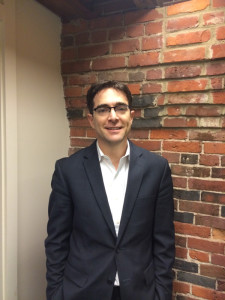Title: President, WinnDevelopment
Age: 34
Experience: 10 years
Darien Crimmin is vice president of energy and sustainability at Boston-based WinnDevelopment. In this role, Crimmin oversees energy audits of the company’s properties and updates designed to make them more efficient. Last month the EPA recognized WinnCompanies’ Castle Square Apartments property in Boston as one of the first multifamily properties in the U.S. to earn the agency’s Energy Star certification for energy efficiency. Prior to joining WinnCompanies, Crimmin was a manager for Harvard Real Estate Services, auditing the university’s portfolio and integrating LEED services.
Q:You studied urban and environmental policy and planning at Tufts University. How did that translate into your current role at WinnCompanies?
A:It’s a great place to work. What we do is super-innovative. We’re at the cutting edge, helping to think of better ways to develop and invest in properties, to facilitate a transition to more sustainable communities. That’s what I went to school for, and that’s been a passion of mine since I can remember. Learning in college about environmental science and ecological principles, and learning about nature and how the world works, and trying to bridge those two together into how we design our cities. It’s a huge challenge to think of transitioning to a sustainable society where we are not dependent on finite fuels. It’s a monumental effort.
Q:What’s changed in how commercial and multifamily properties are audited for energy efficiency in the last decade?
A:More people are familiar with energy audits and what they need to include, how to use them effectively to guide projects, how to hire people to do audits for less money than they cost 10 years ago and to drill down into the information. We’re also seeing capital needs assessments for energy efficiency, a blended approach. A capital needs assessment and an energy audit aren’t necessarily exclusive.
Q:Why has the EPA only recently set up Energy Star ratings for multifamily properties?
A:For office building, the data is more readily available. If they don’t have the data to create the index, you can’t develop a score. It’s an issue; getting tenants’ utility data is the biggest challenge. You need whole building data and when residents pay their (own) bills, it’s hard to collect that data effectively. Sometimes a sampling can be used.
Q:What are the latest technologies being adopted in green building upgrades?
A:We’re seeing a lot of LEDs and we’re really pushing for LEDs throughout our properties. They’ve been around for a few years, but the past two or three years, the technology’s advanced so they are very reliable. The performance is there, the quality is there, but the price has dropped to the point where it is a huge opportunities within common areas, apartment units and exterior lighting. Anywhere there’s a lighting fixture, we can find an LED replacement.
Q:Tell me about WinnCompanies’ open market ESCO (Energy Service Company) and its plans to develop four megawatts of renewable energy to benefit affordable housing by 2020. How does the program work?
A:We have about 1,500 affordable housing units signed up in Massachusetts and we are looking for more. We’re developing and helping facilitate solar photovoltaic (PV) projects across the state to benefit affordable housing. They can result in 15 to 20 percent savings for the project. We work with both solar developers and housing developers. These are solar facilities, both on the rooftops of affordable housing projects and also off-site solar PVs. We’re able to take the net metering credits that are available to that solar facility and transfer them to affordable housing at a discount.
Top Five Favorite Cities (Other Than boston):
- Berlin, Germany
- Wellington, New Zealand
- Burlington, Vt.
- Graz, Austria
- Denver, Colo.








